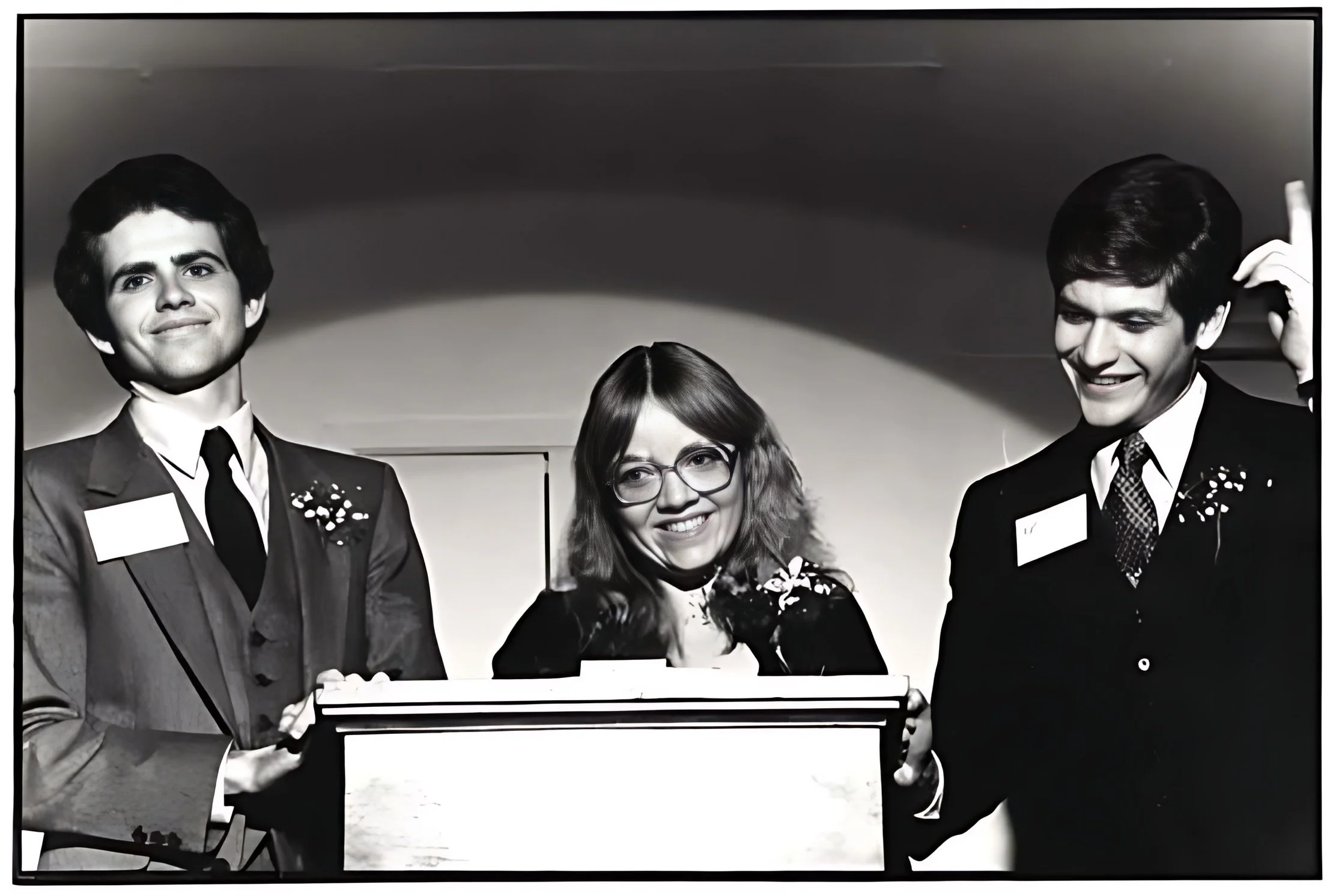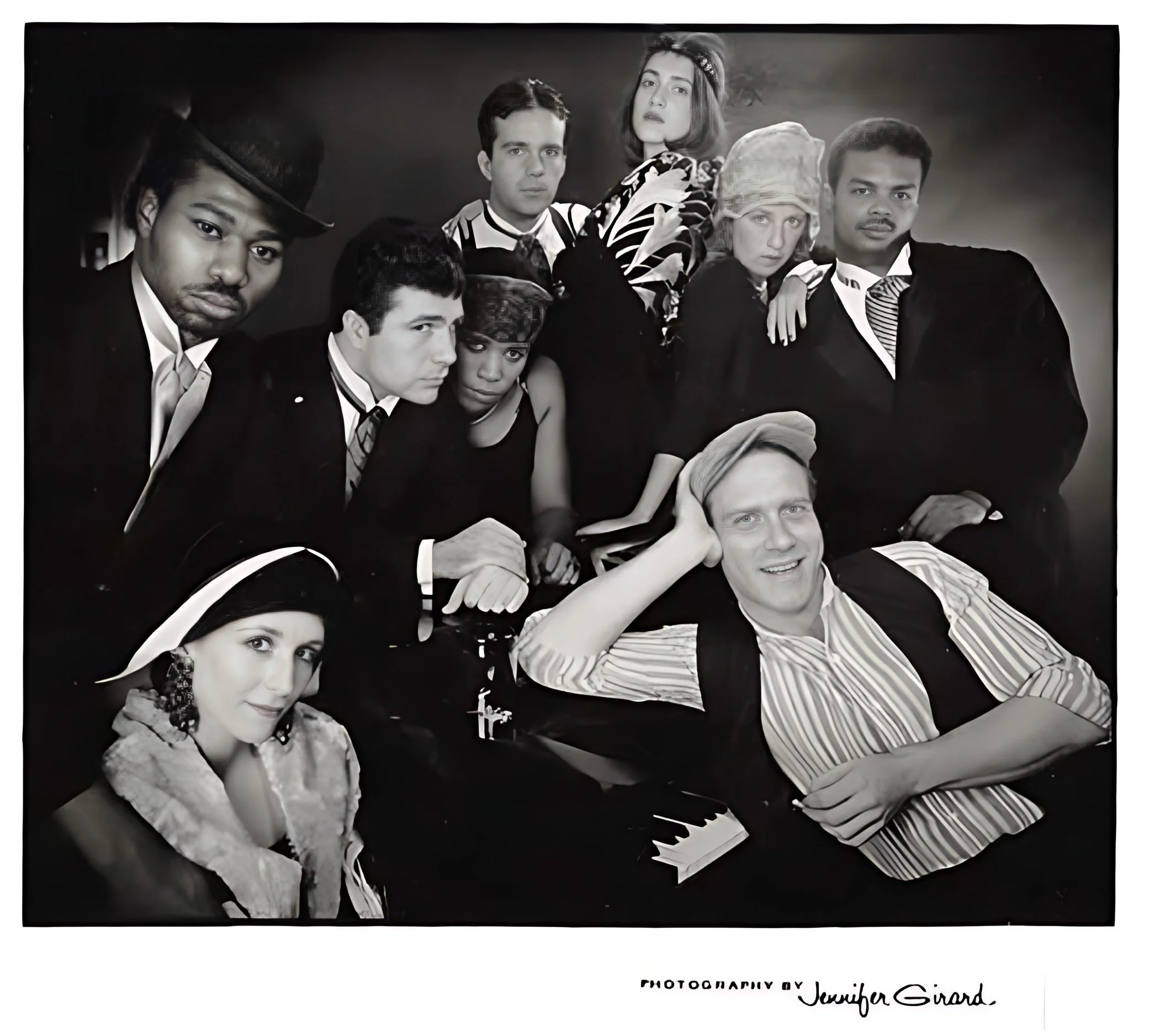Our History
City Lit has been putting on plays for over four decades. Here’s a brief outline of what we’ve done over that time.
1979: the beginning
1980: first presentations
1985-1993: next steps
1993-1999: new leaders
2000-2005:
an end to itinerancy
2006-2024: success, recession, pandemic
2024: up to date
City Lit was founded in 1979 and incorporated in 1980 by Arnold Aprill, David Dillon, and Lorell Wyatt. At the time it was the only theatre in the nation devoted to stage adaptations of literary material. Currently in our 45th season, City Lit has explored fiction, non-fiction, biography, essays and drama in performance while presenting a wide array of voices. Among these voices are found classic writers such as Henry James, Edith Wharton, Oliver Goldsmith, Mark Twain, Colette, and P.G. Wodehouse, as well as such contemporary writers as Alice Walker, W.P. Kinsella, Douglas Post, Raymond Carver, Edward Albee, Harold Pinter and Ruth Prawer Jhabvala. We have premiered, commissioned and produced many new works.
The kick-off season included two presentations and a launch benefit event.
The kick-off season included two presentations and a launch benefit event. Officially the first full-length presentation that City Lit staged was a collection of short stories, The Domestic Contentions of Frank O’Connor, adapted and directed by Arnold Aprill, Included in the cast was a young fellow called John Mahoney. The second performance was a staged reading of W. Somerset Maugham’s The Outstation adapted from a 1926 short story. City Lit specialized in producing "concert readings" that included adapted works of Dorothy Parker, Henrik Ibsen, Ruth Prawer Jhabvala, and James Alan McPherson. These proved to be very popular and City Lit’s reputation grew. The first fully staged play was an ambitious adaptation of Charles Dickens’ A Tale of Two Cities which was the first production of City Lit’s to be cited for Joseph Jefferson (Jeff) Awards.
Artistic Director Arnold Aprill asked Michael Salvador to adapt and direct the first of many adaptations of the works of P. G. Wodehouse under the theme and title Tea and… In the 1987-88 season Mark Richard became an Associate Director alongside Salvador, and Page Hearn first became involved with the company. This was the beginning of the much beloved duo of Richard as "Bertie" and Hearn as "Jeeves" in many renditions of Wodehouse stories. Over the next few years, Aprill set up the City Lit Women’s Collective and the African American Collective to encourage representation and diversity in programming. During this time City Lit performed all over the city, moving around various locations, sharing performance spaces with other companies.
After 14 years Arnold Aprill was tasked by the Marshall Field Foundation to become the first director of Chicago Arts Partnerships in Education (CAPE). The board named Mark Richard as the new Artistic Director. His first season included a tribute to Laurie Colwin, the renowned cookery writer as well as April Sinclair’s Coffee Will Make You Black. Richard’s tenure included a diverse range of works including Jean Cocteau, Saki (H.H. Munro), Donald Bathelme, and Ellen Douglas and, of course, more from Wodehouse. Richard’s final season coincided with the 20th year of City Lit’s existence. Aprill returned to help produce a 20/20 look back of the works of the company. Richard’s final production was an adaptation of Lewis Carroll’s Alice’s Adventures in Wonderland.
Frequent collaborator Page Hearn took on the operations of the company. City Lit vied with other theater companies to secure its first permanent space in the historic Edgewater Presbyterian Church. Hearn kept the company going in difficult financial circumstances, and produced works by Colette, Henry James and the oft-present Wodehouse for his first season. Hearn produced an additional four seasons and presented City Lit's first contemporary original play XXX -my memory is shot before he upped sticks for the bright lights of New York.
In 2005 frequent director Terry McCabe became Artistic Director. Brian Pastor also stepped in initially as Business Manager and then as Managing Director. Playwright Kristine Thatcher became Writing Artist in Residence and the company presented many of her works including The Safe House, Emma's Child, The Bloodhound Law and Voice of Good Hope. In 2015 Pastor stepped away to become managing director at Raven Theatre and then at Sideshow Theatre Company. McCabe helmed City Lit solo until 2024. This period included several successful Arthur Conan Doyle adaptations of Sherlock Holmes stories as well as the non-canonical novel, The Seven Percent Solution by Nicholas Meyer, where Holmes meets Sigmund Freud. In 2011-2015, City Lit produced the five-year Civil War Project in honor of the sesquicentennial: The Copperhead, Opus 1861: the Civil War in Symphony, Comrades Mine, Confederates in the Attic, and The Bloodhound Law. In tandem with the five plays, McCabe initiated a blog which was included by the United States Library of Congress in its historic collection and, is still available on line, https://citylitcivilwar.blogspot.com/2011/ More recently the company commissioned Mark Pracht's Four Color Trilogy, a three play series about the people who created classic American comic book stories.the four-year Civil War cycle, the commissioning of a three play cycle of Comic Book stories by Mark Pracht.
After 19 seasons, Terry McCabe retired with one of City Lit’s most successful shows T. S. Eliot's Murder in the Cathedral which was staged in the church sanctuary beneath our black box. The production was nominated for three Jeff Awards (winning one). The board appointed Brian Pastor as the new Executive Artistic Director in July 2024. Pastor’s first season won two Jeff Awards for Seven Guitars. For over a decade City Lit has toured local libraries and education centers with Books on the Chopping Block, an outreach project in conjunction with the American Library Association’s Banned Books Week.



















